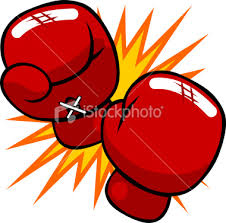It seems at least once a year somebody is railing about the death of the novel. I’ve thrown my hands up in despair about it so many times that I won’t bother to show you the links. But there’s a somewhat different and interesting take on the question going around right now which I can’t help but respond to.
The wonderful poet and cultural commentator, George Szirtes, posted on Facebook this week about a dust up which occurred on the Andrew Marr show between two historians, Niall Ferguson and Gabriel Gorodetsky, and the novelist Jane Smiley. Szirtes described the argument as being:
…over what offers a better understanding not only of history but of contemporary feeling under historical circumstances. Both the historians and the novelist felt forced into a corner: the historians because the novelist seemed to ‘accuse’ them of dealing only with facts not feelings; the novelist because she was being told that in historical novels it is not the feelings of the historical characters but only her own feelings and imagination at work.
I have read some of Ferguson’s work, and have read about him in the press. I have read just about all of Smiley’s work, including the first two instalments of her new Last Hundred Years trilogy. Unfortunately, I know little of Gorodetsky’s work. And although it is tempting to talk about the specifics of this particular argument, I won’t allow myself that guilty pleasure since I didn’t see the broadcast. But I will take the opportunity to think out loud about why I think novels are an enduring and valuable art form, and how they necessarily differ from history.
It was early on in my undergraduate career that I was ushered towards the understanding that history is not as objective as one might think. I remember a course where we looked at Herodotus and Thucydides and examined their styles of writing, word choices, uses of source material as well as their own experiences. I was shown how the act of writing something down in a series of sentences aimed towards an external audience will inevitably lose its objectivity. Words need to be chosen. Order of events needs to be imposed, and most importantly, motivation and causation need to be surmised. To claim that any attempt to explain history is objective is naive. If you don’t believe me, go to any news agent and decide which paper you want to read. Turn on the television and decide which news broadcast you want to listen to. History is more than a simple series of events. History is lived and then reported by human beings, and each one of us brings our own perspectives to our experiences.
And this is my answer to the inelegant question above: Why the novel? Of course, there are many purposes of novels, the most popular of which is as a form of escapist entertainment. So-called genre writing falls into this category, and I think it’s fair to say that novels written with entertainment as their main goal are also the biggest sellers. But let’s put that aside and think about historical and literary fiction ( a terrible term, but one in general use). My own novels, I suppose, fall into that last category, and as I begin to write my fourth of these, I do find myself wondering why. For me,
I aim in my novels to create alternate sets of experiences which can help illuminate for both myself and the reader the reality of a place and the circumstances which inhabit that place.
Cambodia, where I am presently setting my novels, exists in the world with a specific set of political activities, both past and present, a specific climate and culture, an economy which grows out of all those things, and a set of life circumstances for its inhabitants. All of these create a series of stresses which individuals must react to. By creating characters and placing them within that complex context, I can better understand those reactions and choices. More importantly, though, I can imagine what my own reactions to those circumstances might be. I can begin to imagine myself in a different place and time, and that act of imagination leads to a better understanding of myself and, hopefully, a greater understanding of people who might make different choices under those circumstances than I might. A novelist is interested in how human beings react to the reality that surrounds them, whether they understand that reality or not. The specific elements of that reality are not the key. It is the human reactions to those elements which are of interest, not only for themselves, but also for how they then, in turn, affect those elements. Perhaps an easier way of saying it is, read Dickens, whose characters grow out of their environment, illuminate it and force the reader to re-examine his/herself. From this illumination comes compassion, comprehension, and sometimes, if we’re lucky, change.
The history vs art argument is therefore a specious one. It is like comparing oranges and apples, or perhaps war and sex: two different activities with different interests and ambitions. Of course, the aim of putting historians and novelists on television and letting them duke it out is really about publicity and book sales. The success of such a venture is for another blog post. But as I prepare to head back to Cambodia next week for more work, more teaching, some writing and lots of observing, I know that what I witness and experience will be eventually transformed in the writing. The magic comes from what new understandings, depths of feeling and changes that transformation can lead to both in myself and my readers. This is something completely different from just saying what happened.
———–
My next post will be from Cambodia and then Singapore. Stay tuned, please.

Recent Comments